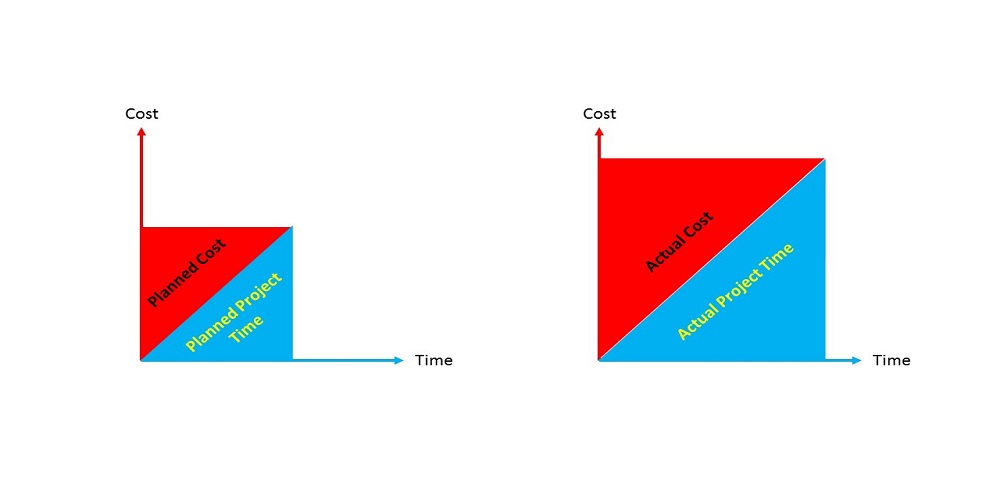75% ERP projects fail, only 2 reasons!
Founder & CEO, Pulse 366 | Enabling AI for Business Leaders | Global Management Consultant | IPE, BUET | 06 March, 2019 (Wednesday)View 149733

75% ERP projects fail
Analyst firms estimated that about 75% ERP projects fail. This statistic is applicable for all over the world including Europe and America.
The failure doesn’t mean that it never go-live. Failure means…
- Costs are significantly exceeded
- Schedules are not met
- Improvements do not live up to expectations
ERP failure could happen before or after the go-live. Many times, failure is fully realized several years after go-live.
ERP vendor is not responsible for failure
Same ERP solution is failed in one company and become successful in another company.
Same ERP consultant delivers successful project in one company and fails in another company. Being in the same industry and same country, one company implements ERP successfully, but other companies struggle and fail.
Therefore, ERP vendor is not the one to blame for ERP failure. Success is all about how the customer/client plan, control, own and execute the ERP project for their company.
The 2 reasons why 75% ERP projects fail
Behind this large-scale ERP failure, there aren’t a lot of reasons. Many people provide 8-10 reasons why ERP fails in a company. In reality, there are only 2 reasons. If these 2 reasons are solved, everything will be solved.
1st reason: top management don’t understand what they are trying to accomplish
Management in many companies believe that ERP will magically solve all their problems. But they don’t know exactly how it is possible and what it takes to accomplish.
In that case, management fail to define clear goals and roadmap. They cannot properly explain people what benefits to expect from ERP and why there should be changes in the process. Without clear explanation, people become confused easily. They think that they will be obsolete if ERP is implemented. Then they start creating roadblocks which leads to ERP failure. Without people’s buy-in, no matter how much training you provide, the ERP projects never get success.
Not having clear understanding on the outcome of ERP, top management fail to choose the right software solution and fail to assign right people for the ERP implementation. Without right project team and without right solution, the ERP project will surely fail.
2nd reason: there is no internal consultant team for the ERP project
In reality external consultancy cost covers more than 60% of total ERP implementation cost. Whether the ERP implementation is successful or failed, the external consultants and software vendor always make their money. The customer/client who failed to implement ERP in their company is always the loser.
The external consultant from ERP vendor is never the key success factor. Only the team of internal consultants can ensure the success of ERP. This team contains…
- An ERP project manager
- Several business analysts
The internal consultant understands the business requirements, processes with all scenarios and special cases. They also understand how an ERP system works and what it is capable of. They can integrate the people and processes in one technology platform successfully as they have knowledge on both software and company processes.
Unfortunately, most companies do not have internal consultant team. Therefore, everything falls under the hand of external consultant. The external consultant is always given limited time because he is too expensive. Within given short time he cannot extract all business requirements; therefore, he has to assume a lot of things while configuring ERP solution.
All these assumptions lead to dissatisfaction from users, and huge number of customizations after go-live. While doing too much customization after go-live, it leads to such disaster that even the external consultant forgets his analysis because he is not fully dedicated to this one project.
At the end, the behavior of software completely changes upon customization backed by poor & incomplete analysis and project goes out of control. Dependency on external consultant (and not having internal team) leads to excessive customization which leads the failure of ERP.
How to be in one of the 25% successful projects
While 75% ERP projects fail, there are 25% projects that deliver the expected result. The successful companies able to take ownership of the ERP project instead of thinking that it’s a project by software vendor.
The top management has to set clear expectations from ERP in written format stating the roadmap, phases, budget and timeline. They also must have a team of internal consultants (an ERP project manager with several business analysts). The internal team should learn the software and configure it by themselves as per business requirements and industry best practices.
----------------------
#ipebulbul #360BA
#ERP #OerationsManagement #BusinessAnalysis













